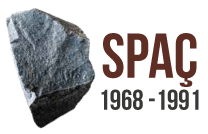AIDSSH Services
At AIDSSH, you can apply for the following certificates:
1. Prison-Mine
2. Internment-Exile
Required documents:
1. The person themselves
2. A representative with a power of attorney/authorization
Who can apply:
1. The person themselves
2. A representative with a power of attorney/authorization
Processing time for applications related to internment certificates and prison periods:
If the request to the Authority is for an internment certificate, the processing time is 10–14 days.
If the request to the Authority is for the prison period, the processing time is 14–30 days.
How to apply:
-Online (to apply online, click here) here)
-At the AIDSSH institution
Institution address: Administrative Unit No. 4, St. Kongresi i Manastirit, “Skënderbej” Garrison, Tirana
Reception office: Directorate of Information, “Citizen Requests and Rehabilitative Services Sector”
Institution address: Administrative Unit No. 4, St. Kongresi i Manastirit, “Skënderbej” Garrison, Tirana
By mail to the address: Administrative Unit No. 4, Rruga Kongresi i Manastirit, “Skënderbej” Garrison, Tirana
- This service is free of charge.
- How to proceed in case of a complaint (new application)
To improve the quality of the service and to further support the rehabilitation process of former politically persecuted persons, AIDSSH has proposed several legal amendments.
1. Fixed compensation amount established by law instead of the current daily compensation
In order to acknowledge the fact of internment in barbed-wire camps and to ensure fair compensation for those who suffered in these camps, through maximum use of available documentation from before and after 1991, AIDSSH suggests in the draft decision “On the proposal of the draft law ‘On some additions and amendments to Law no. 9831, dated 12.11.2007, “On the Compensation of Former Political Prisoners of the Communist Regime”, as amended,” addressed to the Ministry of Justice, the following:
Revision of the provisions of Law no. 9831/2007 to address the aforementioned issues and to allow anyone who suffered in barbed-wire internment camps, and for whom information can be obtained from available archival sources, to benefit, even symbolically.
The amendments may affect Article 1, paragraph 2; Article 3; Article 4; Article 6, letter “b”; and Article 20 with the aim of (1) enabling verification of various documents (as mentioned above) to reach a conclusion regarding internment in barbed-wire camps through document analysis, and (2) in cases where it is impossible to determine the exact number of days spent in internment, to establish a fixed compensation amount by law instead of the current 1000 lek per day.
2. Recognition and compensation for persons born in internment or under 15 years of age during internment
AIDSSH has noted difficulties in documenting and obstacles to compensating persons born in internment or who were minors at the time of internment, since administrative acts or official documents required by the current legal framework were issued for the parents, and no individual acts exist for those born or minors in internment. Furthermore, Instruction no. 2, dated 04.01.1992, point 10, stipulates that the time of internment or political exile is not recognized as work experience before the age of 15.
AIDSSH suggests including a clear legal provision in the draft decision “On the proposal of the draft law ‘On some additions and amendments to Law no. 9831, dated 12.11.2007, “On the Compensation of Former Political Prisoners of the Communist Regime”, as amended,” addressed to the Ministry of Justice, a clear legal provision is proposed for granting compensation to those born in internment or who were minors during internment.
3. Additional time for verification and documentation purposes
AIDSSH has observed that the necessary verifications for all potential beneficiaries of the law, including those added under the suggestions above, require sufficient time. Consequently, it is suggested that the deadline proposed by the Ministry of Justice in Articles 19 and 23 be extended to December 31, 2025, which can also be considered in transitional provisions.
4. Prioritization of relatives of victims killed or executed during 30.11.1944–01.10.1991, redefinition, and revision of compensation amounts
Based on concerns raised by interest groups such as associations of former politically persecuted persons, it is suggested to evaluate changes to Articles 7 and 8 of Law no. 9831/2007 in order to: Harmonize the definition of “relatives” in Article 8 and heirs with the Civil Code for the purposes of benefits under Article 7, revise the compensation amount under Article 7.
Compensation should not be equated with that for 8 years of unjust imprisonment, but at least with the maximum prison sentence of 25 years. Such a change, if implemented, would require transitional adjustments considering current beneficiaries and additional benefits resulting from the amendment (including procedures and deadlines). AIDSSH suggests including this category among the priority groups.
5. Remaining compensations
In response to concerns from interest groups, AIDSSH suggests expediting the payment of remaining compensations according to priority categories. For beneficiaries who, due to age or health conditions (whether the beneficiary is the former persecuted person themselves or relatives of killed or executed victims), are unlikely to receive full compensation, the possibility of paying the remaining amount in a single installment rather than in multiple installments should be considered, as soon as possible.
6. Compensation for forced labor during imprisonment
For all former persecuted persons who performed forced labor while serving their sentence (e.g., in mines), AIDSSH suggests considering a fixed monthly payment as compensation for forced labor, which does not affect other existing benefits.


